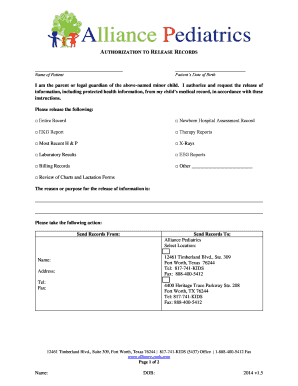
Some offices put test results and imaging studies on a CD-ROM. Do you just want to look at your records to find out what’s in them? Do you need your own copy? Do you want to have a copy sent to another health care provider? Both?Ī health care provider’s office might charge a fee to cover the cost of having someone make copies. Do you need the entire record or only part of it? Specific test results? X-ray films, blood work results, etc.? If it’s been a while and you don’t remember exact dates, ask for records from a range of dates, such as 2000-2005.

When it comes to asking for medical records, different health care providers have different ways of doing things. If it’s a general health issue, you’ll probably want to talk to your family doctor. If it’s dental information, get in touch with your dentist’s office. To get your records, start by figuring out who has the information you want. Talk to your health care provider if you have questions. So if you do look at your records on your own, keep that in mind. Something that can look scary might be nothing to worry about. That’s especially true for test results or images like X-rays and MRIs. Medical records can be confusing for people who aren’t trained to read them. At that point, you need to give written permission for people to see your medical records - even your parents. You’re covered by HIPAA after you turn 18. The law, known as HIPAA, protects patient information from prying eyes. But as more states allow people under age 18 to take charge of their own health services, you might be able to get your own records.Ī U.S. If you’re younger than 18, your parent or guardian will probably need to ask for copies of medical records on your behalf. law gives patients the right to see, get copies of, and sometimes even change their medical records. So if you went to family therapy back when you were 6 and your parents were divorcing, it will be somewhere in your records. Medical records aren’t only about your physical health.

Your records also have the results of medical tests, treatments, medicines, and any notes doctors make about you and your health. So your answers to all those questions your medical care providers ask - like how you’re feeling that day - go into your records. They also include the information you give to your family physician, dentist, or other specialist during an exam. Your medical records contain the basics, like your name and your date of birth. For that reason, some states now manage records in a way that lets all your information be shared between different health care providers. There are different programs and software, and not all medical offices use the same system. Each specialist who treats you keeps their own file, and they’re all part of your medical records.Įven electronic records aren’t simple. Your medical records are in different places.
#PEDIATRIC MEDICAL RECORDS FULL#
Or you might have go to a new doctor and want him or her to know your full medical history.Īs you start taking charge of your own medical care, it helps to know what’s in your medical records, how you can get them when you need to, who else is allowed to see them, and what laws keep them private. At some point, you’ll need the information in them, like if a college or new job needs to see a record of your immunizations. It’s good to know about your medical records. Having a central record like this can help providers give the best care.

So if your dermatologist wants to give you a prescription, he or she can check to see if other doctors have given you medicines that might react badly with the new one. You might hear these called EHRs - short for electronic health records.Įlectronic records make it easier for all your medical care providers to see the same information. Many health care providers keep this information as electronic records. Each time you climb up on a doctor’s exam table or roll up your sleeve for a blood draw, somebody makes a note of it in your medical records.


 0 kommentar(er)
0 kommentar(er)
